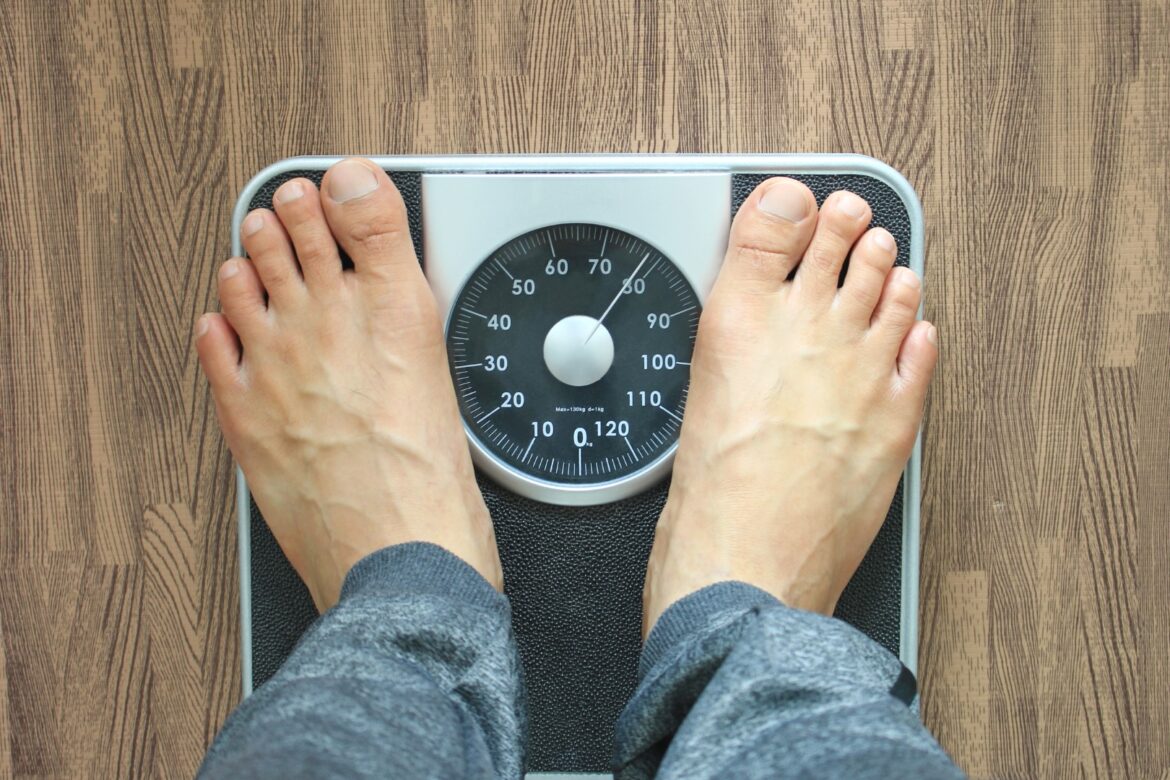Weight loss can be a challenging journey for many people. There are countless diets and exercise plans available, each promising to help you shed unwanted pounds. However, many of these plans are not sustainable, and the weight often comes back once the diet or exercise routine is abandoned. In this blog post, we will discuss the science behind weight loss and how to make it sustainable.

The Science Behind Weight Loss
To understand weight loss, it’s important to understand the science behind it. At its most basic level, weight loss occurs when you burn more calories than you consume. This is known as a calorie deficit, and it can be achieved through a combination of diet and exercise.
When you consume food, your body breaks it down into its component parts, including carbohydrates, fats, and proteins. These nutrients are then used to provide energy for your body’s functions. Any excess energy that is not used is stored in your body as fat.
To lose weight, you need to create a calorie deficit. This can be done by consuming fewer calories or burning more calories through exercise. When you create a calorie deficit, your body begins to use its fat stores for energy, which leads to weight loss.
Making Weight Loss Sustainable
While creating a calorie deficit is the foundation of weight loss, making it sustainable requires a more comprehensive approach. Here are some tips for making weight loss sustainable:
Focus on Long-Term Changes
Many people approach weight loss as a short-term fix, with the goal of losing a certain amount of weight within a specific timeframe. However, for weight loss to be sustainable, it’s important to focus on long-term changes to your diet and exercise habits. This means adopting healthy eating habits and incorporating regular exercise into your lifestyle, rather than following a strict diet or exercise plan for a limited period of time.

Set Realistic Goals
Setting realistic goals is important for sustainable weight loss. It’s important to remember that weight loss is a gradual process, and it’s unlikely that you will achieve your desired weight overnight. Instead, set small, achievable goals that are in line with your overall weight loss plan. Celebrate your successes along the way, and don’t be too hard on yourself if you experience setbacks.
Eat a Balanced Diet
Eating a balanced diet is essential for sustainable weight loss. This means consuming a variety of nutrient-dense foods, including fruits, vegetables, whole grains, lean proteins, and healthy fats. Avoid crash diets or fad diets that severely restrict certain foods or food groups, as these are often not sustainable in the long term.
Monitor Portion Sizes
Portion sizes play a big role in weight loss. Even healthy foods can contribute to weight gain if consumed in excess. Use measuring cups or a food scale to measure your portions, and be mindful of how much you are eating. It’s also helpful to avoid eating in front of the TV or computer, as this can lead to mindless eating.
Find an Exercise Routine You Enjoy
Regular exercise is important for weight loss, but it can be challenging to stick to an exercise routine if you don’t enjoy it. Find an exercise routine that you enjoy, whether it’s running, swimming, yoga, or something else. This will make it easier to stick to your exercise routine in the long term.
Practice Mindful Eating
Mindful eating involves paying attention to the food you are eating and being present in the moment. This can help you make healthier choices and avoid overeating. To practice mindful eating, take time to savor each bite of food, chew slowly, and avoid distractions while eating.
Get Enough Sleep
Getting enough sleep is important for weight loss. Lack of sleep can disrupt your hormones, leading to increased appetite and cravings. Aim to get at least 7-8 hours of sleep per night, and try to maintain a consistent sleep schedule.
Stay Hydrated
Staying hydrated is important for overall health and weight loss. Drinking water can help you feel full and reduce your appetite, and it can also help your body flush out toxins. Aim to drink at least 8-10 glasses of water per day, and avoid sugary drinks like soda and juice.
Manage Stress
Stress can contribute to weight gain, as it can lead to emotional eating and disrupt your sleep. To manage stress, try to incorporate relaxation techniques into your daily routine, such as meditation, yoga, or deep breathing exercises. It’s also important to practice self-care and take time for yourself.

Stay Accountable
Staying accountable can help you stay on track with your weight loss goals. This can be done through tracking your progress, such as weighing yourself regularly or keeping a food diary. It can also be helpful to enlist the support of a friend or family member, or to join a support group or weight loss program.
Conclusion Weight loss can be a challenging journey, but it is possible to make it sustainable. By focusing on long-term changes, setting realistic goals, eating a balanced diet, monitoring portion sizes, finding an exercise routine you enjoy, practicing mindful eating, getting enough sleep, staying hydrated, managing stress, and staying accountable, you can achieve your weight loss goals and maintain a healthy lifestyle. Remember that weight loss is a gradual process, and don’t be too hard on yourself if you experience setbacks. With patience and persistence, you can achieve sustainable weight loss and improve your overall health and well-being.


